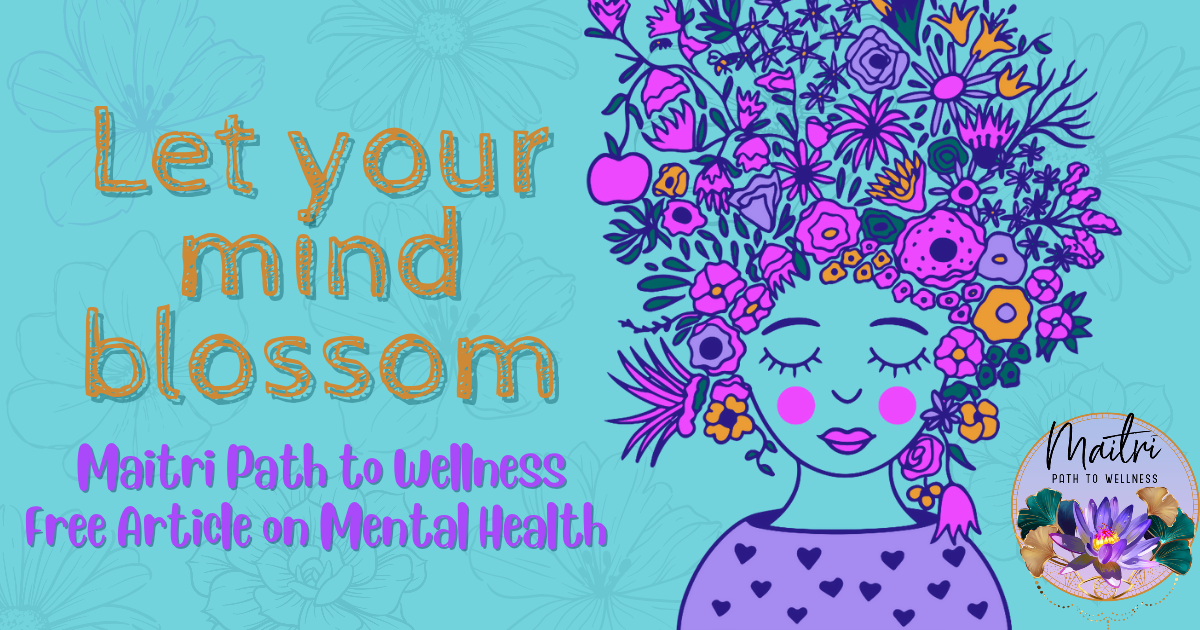Introduction
Substance use disorder, formerly known as substance abuse, is a pervasive issue affecting individuals worldwide. It has detrimental effects on physical and mental health, relationships, and overall well-being. Fortunately, with the right treatment program and counseling, individuals can embark on a journey of recovery and find a new lease on life. In this article, we will explore the essential role of individual and group counseling in substance use disorder treatment, providing a comprehensive roadmap towards lasting recovery.
Substance use disorder refers to the chronic, recurring pattern of substance misuse that leads to significant impairment or distress. It involves the misuse of substances such as alcohol, drugs, or other addictive substances. Counseling plays a pivotal role in addressing the complex nature of substance use disorder and facilitating recovery. This article focuses on the benefits and techniques utilized in individual and group counseling to empower individuals on their path to healing.
Substance use disorder affects individuals from all walks of life and can have severe consequences. It encompasses a range of substances, including alcohol, opioids, stimulants, and more. The disorder leads to various physical, psychological, and social effects, jeopardizing personal and professional relationships. Understanding the nature and impact of substance use disorder is crucial for individuals and their loved ones seeking effective treatment and support.
The Role of Counseling in Treatment
Counseling forms a cornerstone of substance use disorder treatment programs. It offers a safe and supportive environment where individuals can explore the underlying factors contributing to their addiction and develop strategies for recovery. Through counseling, individuals gain a deeper understanding of their triggers, cravings, and patterns of substance misuse, empowering them to make positive changes in their lives.
Counseling provides individuals with the opportunity to work with trained professionals who specialize in addiction and mental health. These professionals employ evidence-based approaches tailored to the individual’s unique needs, promoting personal growth and well-being. Counseling sessions may be conducted individually or in a group setting, depending on the treatment program and the individual’s preferences.
Individual counseling is a crucial component of substance use disorder treatment. In individual sessions, individuals can establish a therapeutic relationship with their counselor, fostering trust and open communication. This setting allows for personalized attention and the exploration of underlying issues contributing to addiction. Various counseling techniques, such as cognitive-behavioral therapy (CBT), motivational interviewing, and mindfulness-based approaches, are employed to help individuals build resilience, develop coping mechanisms, and establish sustainable recovery.
Group counseling, on the other hand, provides a powerful platform for individuals with substance use disorder to connect, share experiences, and support one another. In a group setting, individuals realize they are not alone in their struggles and can learn from peers who have faced similar challenges. Group therapy activities, including discussions, role-playing exercises, and group exercises, foster personal growth and enhance relapse prevention. The support and camaraderie within a group setting can significantly contribute to an individual’s recovery journey.
Individual Counseling for Substance Use Disorder
Individual counseling focuses on the specific needs and challenges faced by individuals with substance use disorder. In these sessions, individuals have the opportunity to work closely with a counselor to address their unique circumstances, triggers, and patterns of substance misuse. Individual counseling provides a safe space where individuals can delve into the underlying causes of their addiction, explore past experiences, and develop healthier coping mechanisms.
During individual counseling sessions, the counselor establishes a therapeutic alliance with the individual, creating a relationship built on trust, empathy, and confidentiality. The counselor employs evidence-based techniques and interventions tailored to the individual’s needs. These may include cognitive-behavioral therapy, which aims to identify and modify negative thought patterns and behaviors, and motivational interviewing, which helps individuals strengthen their motivation and commitment to change.
The goal of individual counseling is to empower individuals to take control of their recovery journey. Through self-reflection, exploration of personal values and goals, and the development of coping strategies, individuals can build resilience and make positive changes in their lives. The counselor serves as a guide, offering support, feedback, and guidance throughout the process.
Individual counseling sessions typically involve a collaborative approach, with individuals actively participating in setting goals, discussing progress, and addressing challenges. The counselor encourages open communication and provides a non-judgmental space for individuals to express their thoughts and emotions. This collaborative process fosters self-awareness, personal growth, and the acquisition of skills necessary for long-term recovery.
Group Counseling for Substance Use Disorder
Group counseling is a valuable component of substance use disorder treatment. It offers individuals the opportunity to connect with peers who are facing similar challenges, share experiences, and provide support to one another. Group therapy provides a sense of community, reduces feelings of isolation, and allows individuals to learn from others who have successfully navigated the recovery journey.
In a group counseling setting, individuals benefit from the wisdom and perspective of their peers. They gain insight into different coping strategies, relapse prevention techniques, and approaches to managing cravings and triggers. Through active participation in group discussions, role-playing exercises, and interpersonal interactions, individuals enhance their communication skills, build self-esteem, and develop a sense of belonging.
Group counseling sessions are facilitated by trained professionals who guide the process, ensure a safe and respectful environment, and encourage open dialogue. The group dynamic fosters empathy, understanding, and mutual support. It allows individuals to witness the progress and successes of their peers, providing hope and inspiration on their own recovery journey.
Group counseling offers individuals the opportunity to receive feedback and different perspectives on their challenges and progress. The diverse experiences and backgrounds of group members create a rich and supportive environment for personal growth. Group therapy activities, such as art therapy, experiential exercises, and skill-building sessions, enhance self-expression and facilitate deeper emotional healing.
Dual Diagnosis and Co-Occurring Disorders
Substance use disorder often co-occurs with other mental health conditions, such as anxiety, depression, or trauma-related disorders. This comorbidity, previously known as dual diagnosis, requires a comprehensive approach that addresses both substance use disorder and the co-occurring mental health condition. Integrated treatment approaches have proven to be effective in addressing these interconnected challenges.
Dual diagnosis and co-occurring disorders present unique complexities in treatment. Individuals with co-occurring conditions may turn to substances as a way to self-medicate or alleviate symptoms. Similarly, substance use can exacerbate the symptoms of underlying mental health conditions. To effectively address these interconnected challenges, treatment programs utilize a multidisciplinary approach that integrates counseling, medication management, and support services.
Integrated treatment for dual diagnosis focuses on understanding the interplay between substance use and mental health. It incorporates evidence-based interventions that simultaneously address both conditions, providing individuals with a comprehensive support system. By treating substance use disorder and the co-occurring mental health condition concurrently, individuals can achieve improved outcomes and long-lasting recovery.
The Recovery Journey and Relapse Prevention
The recovery journey from substance use disorder is a lifelong process that involves multiple stages and milestones. Each stage presents unique challenges and opportunities for growth. Counseling plays a vital role in supporting individuals throughout their recovery journey, helping them navigate the various stages and develop effective relapse prevention strategies.
The recovery journey begins with the acknowledgment and acceptance of the substance use disorder. Individuals often experience a range of emotions, including guilt, shame, and fear, at this initial stage. Counseling provides a safe space for individuals to explore these emotions, gain self-awareness, and develop a sense of self-compassion.
As individuals progress through the recovery journey, counseling assists in developing coping mechanisms and strategies to manage cravings, triggers, and high-risk situations. Cognitive-behavioral therapy (CBT) techniques, such as identifying and challenging negative thought patterns, are employed to empower individuals to make healthier choices and resist relapse.
Relapse prevention is a crucial aspect of the recovery process. Counseling equips individuals with the necessary tools and skills to identify warning signs, implement effective coping strategies, and seek support when needed. Through ongoing counseling, individuals can develop a relapse prevention plan tailored to their specific needs and circumstances.
Counseling sessions provide individuals with a safe and non-judgmental space to discuss their experiences, challenges, and successes. The counselor collaborates with the individual to identify personal strengths, build resilience, and enhance motivation for continued sobriety. By addressing underlying issues, managing stress, and developing a support network, individuals can maintain long-term recovery and thrive in their newfound sobriety.
Outpatient Counseling Programs
Outpatient counseling programs offer individuals the flexibility to receive counseling and support while maintaining their daily life responsibilities. These programs are particularly suitable for individuals with mild to moderate substance use disorder who do not require round-the-clock supervision. Outpatient counseling allows individuals to attend counseling sessions at scheduled times, usually during evenings or weekends, while continuing with work, school, or other commitments.
Outpatient counseling provides comprehensive support for individuals on their recovery journey. It offers a range of services, including individual counseling, group therapy, psychoeducation, and support groups. The structure of outpatient programs varies, with some individuals attending several sessions per week initially and gradually transitioning to less frequent sessions as they progress in their recovery.
The benefits of outpatient counseling programs include the opportunity for individuals to practice the skills learned in counseling sessions in real-life situations. By receiving counseling while actively engaging in daily life responsibilities, individuals develop the resilience and confidence necessary for sustainable recovery. Outpatient counseling programs also provide a supportive community of individuals going through similar challenges, fostering a sense of belonging and reducing feelings of isolation.
Outpatient counseling is not suitable for everyone. Individuals with severe addiction, co-occurring disorders, or a need for intensive support may benefit from more intensive treatment settings, such as residential or inpatient programs. However, for those who can maintain stability and safety while attending counseling sessions, outpatient counseling offers a valuable treatment option.
Achieving Sustainable Recovery
Sustainable recovery from substance use disorder requires ongoing counseling and support beyond formal treatment programs. The recovery journey is unique for each individual, and long-term recovery involves developing a range of strategies and habits to support a healthy, substance-free lifestyle.
Ongoing counseling plays a critical role in maintaining sustainable recovery. Regular counseling sessions provide individuals with continued guidance, support, and accountability. By attending counseling sessions, individuals can address emerging challenges, celebrate milestones, and explore personal growth opportunities.
In addition to counseling, individuals are encouraged to build a strong support network consisting of friends, family, and individuals in recovery. Support groups, such as Alcoholics Anonymous (AA) or Narcotics Anonymous (NA), provide a sense of community and a platform for sharing experiences, strength, and hope. These support networks serve as invaluable resources, offering guidance, understanding, and motivation throughout the recovery journey.
Engaging in self-care practices is vital for sustainable recovery. This may include adopting healthy lifestyle habits such as regular exercise, proper nutrition, and sufficient sleep. Engaging in activities that promote relaxation, stress management, and personal fulfillment, such as meditation, yoga, or hobbies, can also contribute to overall well-being.
Maintaining sustainable recovery involves identifying and avoiding high-risk situations, developing effective coping mechanisms, and implementing relapse prevention strategies. Counseling sessions provide individuals with the necessary tools to navigate these challenges and address underlying issues that may contribute to relapse.
Conclusion
Substance use disorder counseling is a vital component of treatment programs, offering a roadmap to a new life for individuals struggling with addiction. Through individual and group counseling, addressing co-occurring disorders, and implementing relapse prevention strategies, individuals can embark on a transformative journey towards lasting sobriety and a healthier, more fulfilling life.
By embracing counseling as part of the treatment process, individuals can gain self-awareness, develop coping skills, and build a strong foundation for their recovery journey. Counseling offers a safe and supportive space where individuals can explore their emotions, challenges, and aspirations. It provides guidance, validation, and encouragement, empowering individuals to make positive changes and embrace a future free from substance use.
Remember, seeking professional help is essential for individuals facing substance use disorder. Qualified counselors and treatment centers provide specialized care, evidence-based interventions, and a compassionate approach to support individuals on their path to recovery.
FAQs
How long does substance use disorder counseling typically last? A: The duration of substance use disorder counseling varies depending on individual needs and the severity of the addiction. It can range from a few weeks to several months or even years, with ongoing support often recommended for sustained recovery.
Is counseling the only treatment modality for substance use disorder? A: Counseling is a vital component of treatment for substance use disorder, but it is often combined with other approaches such as medication-assisted treatment, support groups, and lifestyle modifications to provide comprehensive care tailored to the individual’s needs.
Can counseling help prevent relapse? A: Yes, counseling plays a crucial role in relapse prevention. It equips individuals with coping strategies, identifies triggers, and addresses underlying issues to minimize the risk of relapse and support long-term recovery.
Can family members or loved ones participate in counseling sessions? A: Family therapy and involvement can be an integral part of substance use disorder counseling. Including family members or loved ones in sessions can enhance communication, foster understanding, and contribute to a supportive recovery environment.
Is outpatient counseling effective for all individuals with substance use disorder? A: Outpatient counseling can be effective for individuals with mild to moderate substance use disorder who can maintain stability and safety while attending counseling sessions. Those with severe addiction or requiring intensive support may benefit from more intensive treatment settings.
Can counseling address co-occurring disorders? A: Yes, counseling plays a critical role in addressing co-occurring disorders. Integrated treatment approaches focus on both substance use disorder and the associated mental health condition, offering comprehensive support and improved outcomes.

Hey there friend! I’m Brenden Fasken, a passionate advocate for mental health and the transformative power of recovery. As a proud recovering addict, I’ve traveled the winding roads of addiction and emerged on the other side, ready to share my experiences and insights with you. I enjoy sharing blogs that delve into the complexities of mental health, substance use disorders, and the journey of personal growth. I aim to break down barriers, spark conversations, and offer a beacon of hope to those who may be struggling. So, join me as we embark on this empowering journey together, exploring the depths of our minds, celebrating resilience, and embracing the transformative potential within each of us.
Through my own recovery journey, I’ve learned that life’s challenges can be our greatest teachers. With each hurdle, I’ve gained insights and perspectives that have shaped my understanding of mental health and addiction. From the darkest moments to the brightest triumphs, I share personal anecdotes, reflections, and practical advice that I’ve gathered along the way. Together, we’ll navigate the labyrinth of emotions, challenge societal stigmas, and uncover the power of self-care and self-discovery. So, buckle up and get ready for an engaging and insightful ride as we explore the nuances of mental health and embark on a shared quest for personal growth and well-being.

